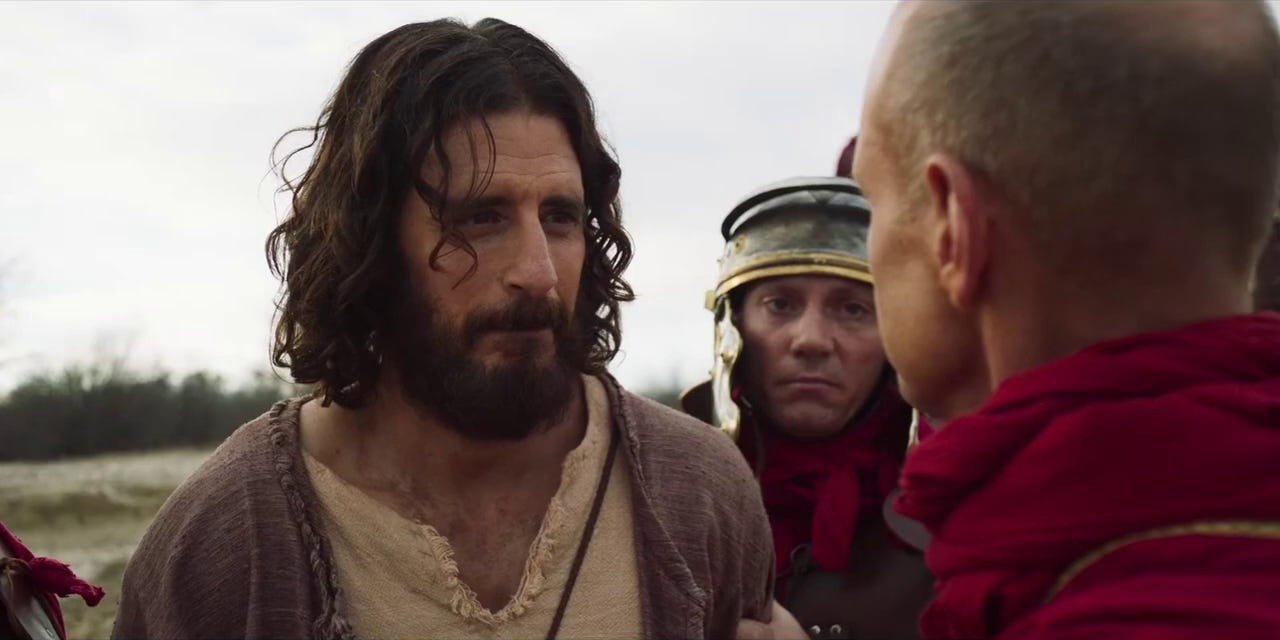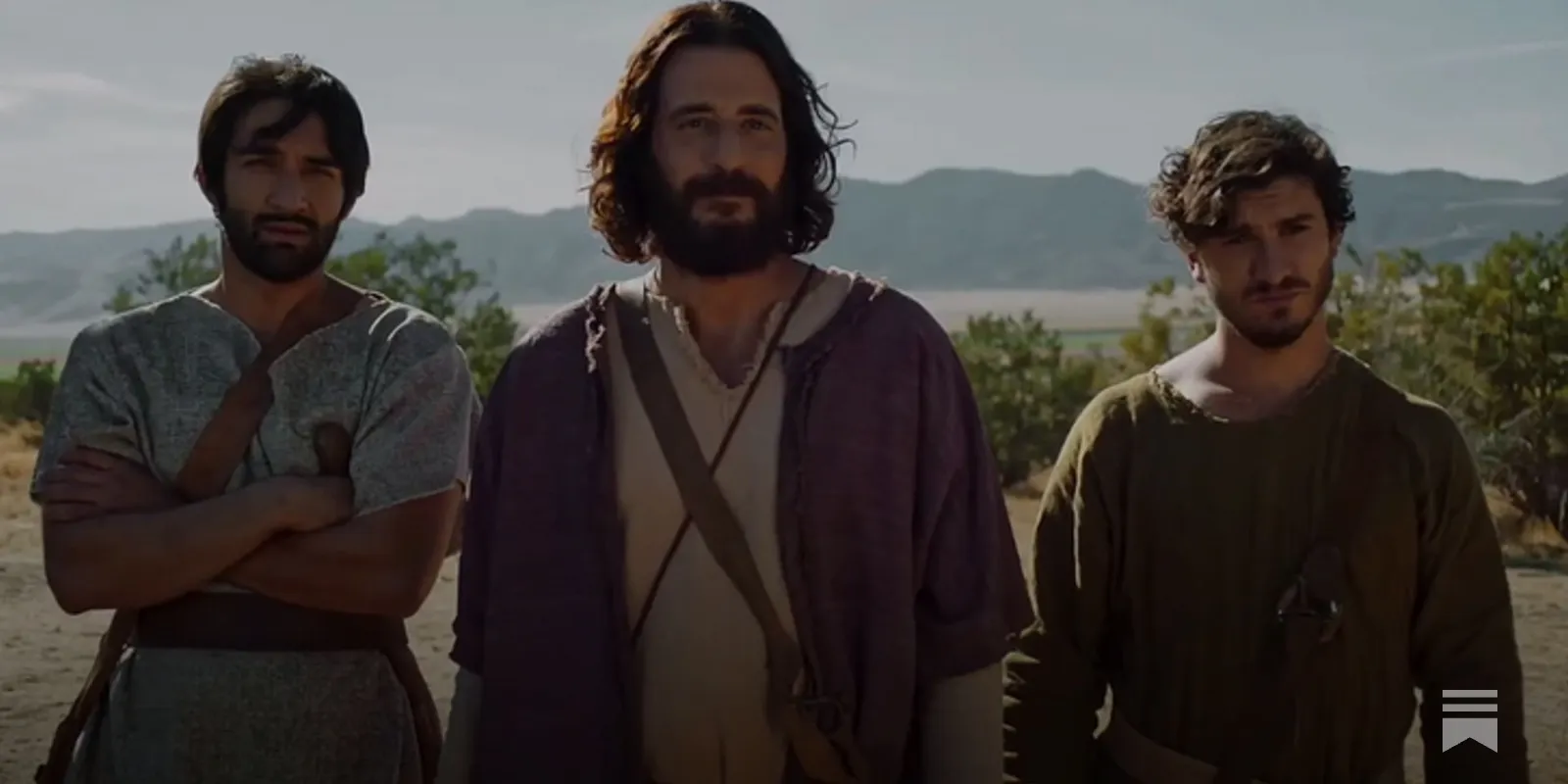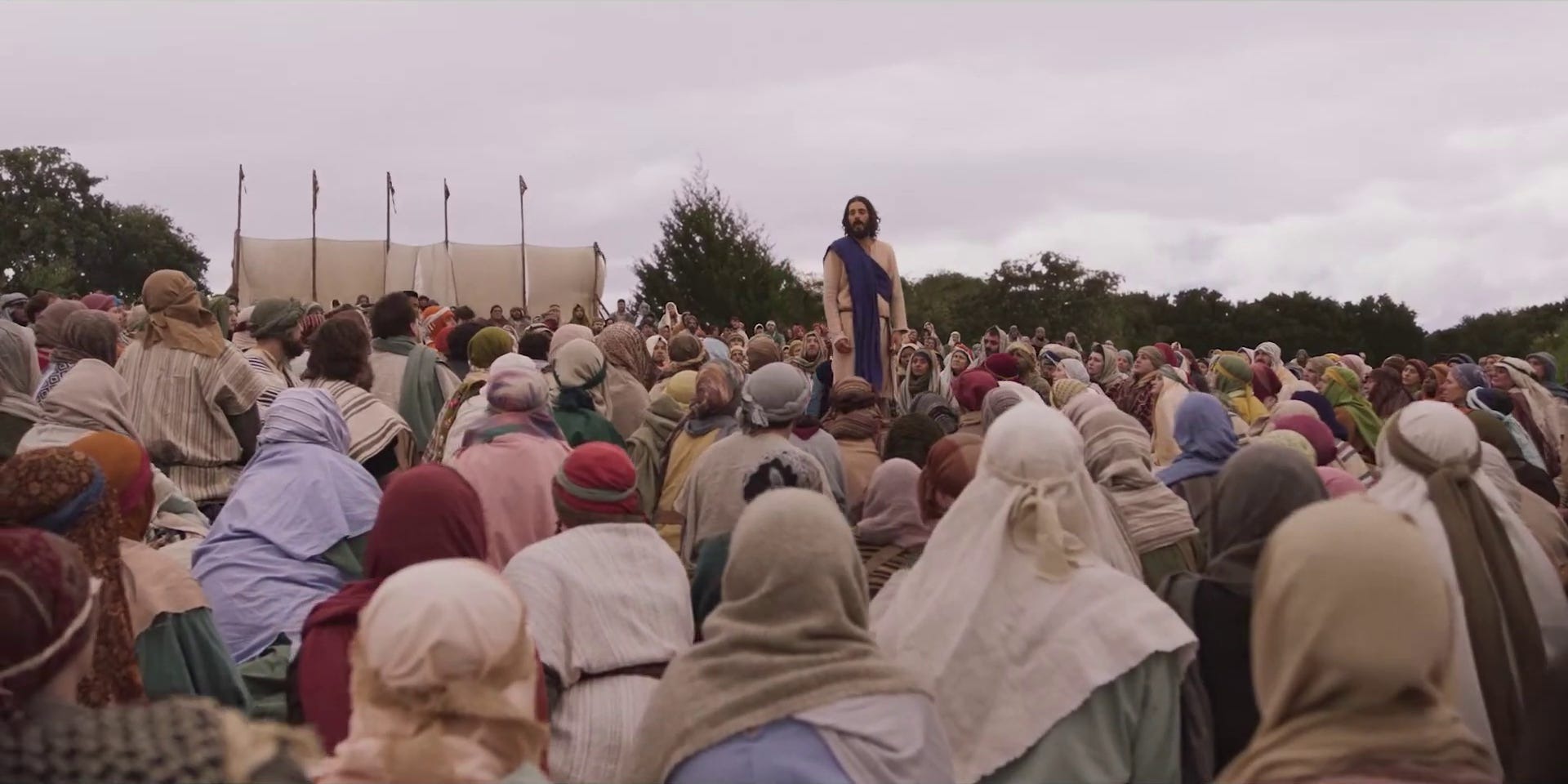The opening part of the episode presents men who pretend to be from the tribe of Simeon as they try to buy land from someone with Reuben’s lineage. They deliberately lied about their background because they knew the truth would have blocked the transaction.
It appeared well known, even beyond Jewish society, that the land of Israel was not something to be sold to non-Jews. Some may see a refusal to sell the land as being selfish, but the reason lies in obeying God’s command.

“The land shall not be sold permanently, for the land is Mine; for you are but aliens and sojourners with Me.” — Leviticus 25:23. Arguments have persisted for thousands of years over who truly owns the land of Israel. However, those who accept the authority of Scripture rely on God’s own words.
Since God says the land is His, and He gave it to Abraham and his descendants, then that settles the issue for those who believe the Bible (as seen in Genesis 15:18–21 and similar scriptures).
Hellenism
John comments on Simon the Zealot’s strong interest in physical fitness, saying it “smacks of Hellenism.” What he meant was that Simon’s behavior resembled the Greek cultural influence that had begun creeping into Jewish life.
Physical fitness on its own may not sound harmful, but the broader effects of Hellenism posed deeper problems. Jewish and Greek traditions were very different, yet both groups lived side by side during this period, which tempted some Jews to copy the Greek way of life.
As a result, some Jews got involved in idol worship and practices that went directly against God’s commands. The pressure to conform didn’t only come from a desire for peace or political convenience. Sometimes it was forced.
The account of the Maccabees, which led to the celebration of Hanukkah, tells of a troubling time when Jews faced harsh persecution and were ordered to abandon their religious customs. Still, it’s not surprising, given that we live in a fallen world, and true worshippers of God are often targets of persecution.
Jesus foresaw this reality and gave us a word of reassurance. “Do not fear those who kill the body but are unable to kill the soul, but rather fear Him who can destroy both soul and body in hell.” — Matthew 10:28.
God’s followers have always faced and still face persecution, and the future may bring more of the same. Choosing to live for God and His Son means one may be treated unfairly. Jesus himself warned that if he was persecuted, we should expect to face similar treatment when we follow him.
So when persecution comes, take it as a sign that you’re standing for eternal truth. It’s proper to obey God’s Word, even when others don’t understand or accept why we live the way we do.
They All Want to Follow in the Right Way
Ramah and Mary are shown reflecting on Psalm 139, and then Thomas and Tamar talk about how the disciples have been arguing. Thomas observes, “They all love our rabbi and want to follow him in the right way. They just can’t agree on what that right way is.”
That statement immediately brought to mind how things are among many Christian groups today. Many of us genuinely desire to honor God in how we live, yet we constantly argue about the best way to go about it. Instead of putting emphasis on what we have in common, we allow our differences to cause division.
It takes a deliberate and conscious decision to avoid falling into that trap. Since we live in a broken world, it’s easy for Christians to lose focus and start behaving like those who don’t know God. We need to respect how each of us responds to the Spirit’s guidance.
There’s nothing wrong with honestly working through disagreements about Scripture, and we should be humble enough to correct each other in love when we go off course. Pride often pushes us to defend our views strongly, but we should keep our focus on eternal matters and protect unity with great care.
The House of Shammai
There’s a scene where Shmuel and Yanni bring their concerns about Jesus to Shammai, and it’s clear that he welcomes the tension that would follow. As earlier explained in the fifth episode of Season 2, Jewish religious thought during that time was largely influenced by two schools: Shammai and Hillel.

The two rabbis behind them had different takes on how the laws in Scripture should be lived out. Shammai leaned toward stricter observance, while Hillel approached the law with more compassion and attention to human needs.
These two schools often clashed, and their disagreements sometimes turned into actual fights. In the long run, most Jewish leaders leaned toward Hillel’s position, which is why modern Judaism reflects more of his thinking.
Jesus’s teachings showed that his views leaned closer to Hillel’s. He frequently challenged the Pharisees whenever their strict interpretations became a burden to people, which reflects how Hillel also tried to give the law a more humane application.
The Healing of the World
During the part where Jesus and Matthew are putting together the sermon, Jesus shares that his intention is for his people to join in the healing of the world, not in destroying it. Judaism has a term for this concept—Tikkun Olam—which means “repair the world.”
Given how broken the world is, this idea encourages individuals to do whatever is within their ability to fix what’s broken. Tikkun Olam calls people to care for nature, build good relationships, help the needy, and bring back something of the peace and wholeness seen in the Garden of Eden.
We may not be able to return things completely to how they were in Eden, but everyone can make some kind of contribution to make life better—for themselves, others, and those yet to come.
The principle behind Tikkun Olam is that, while perfection is out of reach for now, we should each make the effort to do what we can to make the world better.



